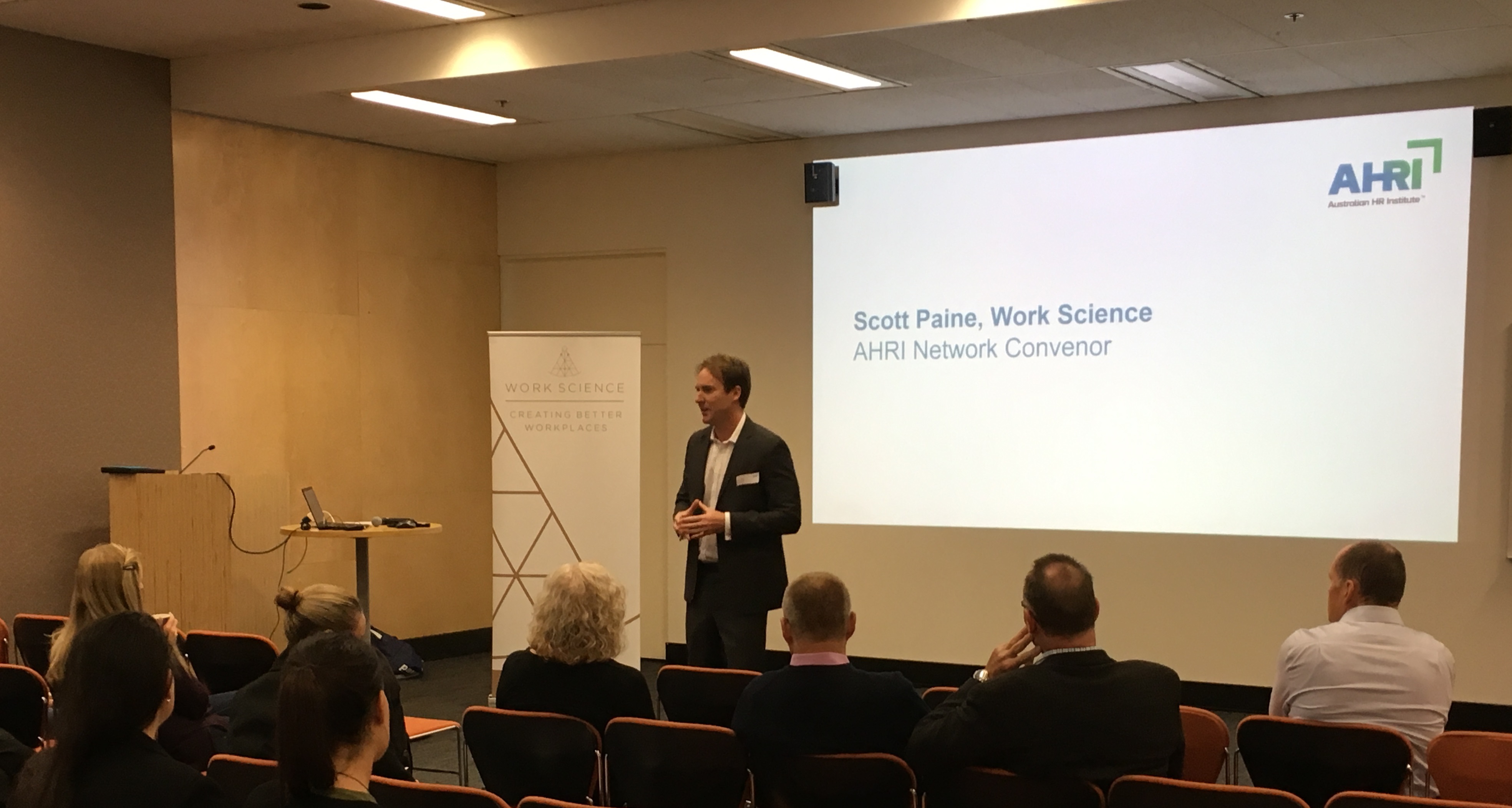AHRI Forum – Psychosocial Wellbeing Wrap-up
Earlier this month our AHRI Health, Safety and Wellbeing Forum welcomed back Chelsea Cook, National Safety, Health, Environment and Quality (SHEQ) Manager at Defence Housing Australia (DHA) to share an update on DHA’s transformational safety journey.
Last year Chelsea presented on DHA’s occupational violence program; now DHA has extended to address psychological risks. Chelsea presented a case study on DHA’s journey to create a culture where psychosocial risks in the workplace are accepted and employees are both empowered to take responsibility for their wellbeing and given the opportunity to thrive.
DHA’s psychosocial wellbeing journey consisted of detailed research to understand the organisation’s psychological profile; early executive engagement; rigorous assessment of external service providers; and comprehensive training to embed this change across the entire organisation.
Following the presentation, Work Science did some quick polling of participants:
- Although 75% of attendees said their organisations were concerned or very concerned about psychosocial risk, 41% of attendees said they were just starting out, wanted to address psychosocial risk, but had no plans in place yet
- A further 41% stated they had made some progress such as activities as part of their WHS management system, but no implemented program
- On the balance, psychosocial risk was considered the same importance as other risks in the organisation, with 82% of attendees providing this response
- Attendees continue to be split on the recurring question about whether they believe all workplace injuries are preventable. There was an interesting jump to 62% of attendees responding, ‘yes they are preventable’, which contrasts with the 40% ‘yes’ responses from the two previous forums. This indicates the attendees are more inclined to proactively manage WHS risks at their organisation.
Scott Paine, AHRI Network Convenor, summarised the insights from implementing a successful psychosocial wellbeing program:
- Seek executive support first through careful planning, a solid business case and linking psychosocial wellbeing to improved organisational performance.
- Establish credibility with the workforce through creating a solid foundation for safety culture first, before tackling psychosocial risk. When WHS risks are raised and addressed in a non-judgemental way people will be more inclined to engage in psychosocial wellbeing activities
- It’s important to shift the mindset about psychosocial risk. Historically this was a ‘taboo subject’, however, it still should be dealt with like any other health and safety risk – openly and transparently
- Rigorously assess any external providers you engage for psychosocial training. It’s critical that the provider has the experience, credentials and rapport that fits with your organisational culture
- Train leaders first. Leaders across the business that are supportive of a psychosocial wellbeing will demonstrate to their teams that it is okay to consider this as a regular health and safety risk to manage. Trained leaders are also helpful in engaging with those resistant to change.
If you are interested in more information send me an email at [email protected].
Lastly, thanks to our kind hosts the NSW Department of Finance, Services & Innovation.

